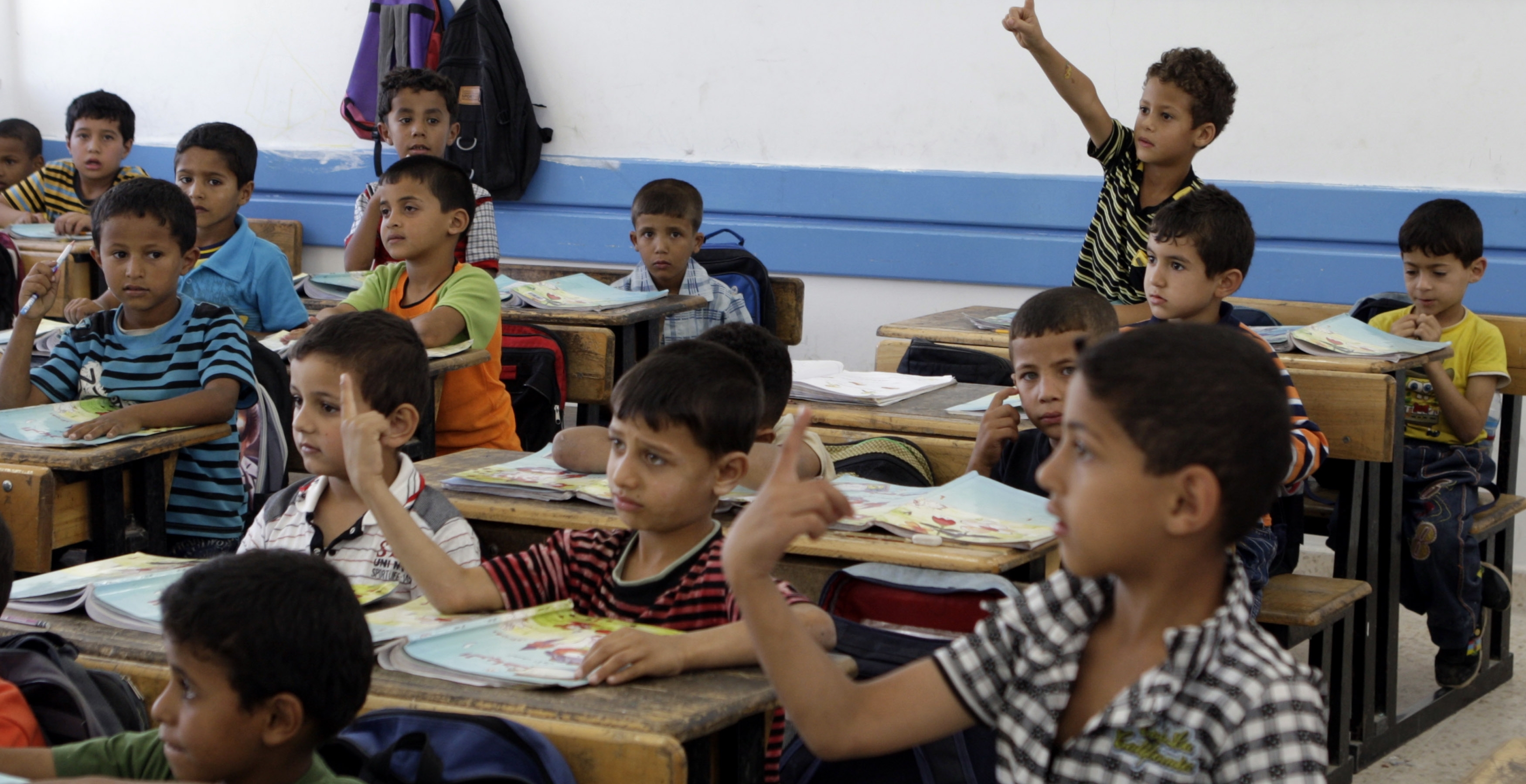For years, Israel’s apologists have made headlines accusing the Palestinians of using anti-Semitic textbooks. Recently, the battle came to Canada when B’nai Brith attacked the government’s decision to fund the UN aid organization for Palestinian refugees (UNRWA), suggesting UNRWA school textbooks demonized Israel. It is a cynical strategy which grabs headlines when announced, but fails to make the news when such allegations are debunked.
When exploring the most recent incarnation of these accusations, it’s important to mention a few realities conveniently omitted by Israel’s champions. First, UNRWA has never been in the business of producing textbooks. Instead, UNRWA schools use the textbooks and curricula of the countries which host the refugees, i.e. the textbooks of the Palestinian Authority (PA) in the West Bank and Gaza; and the textbooks of Jordan, Syria and Lebanon in those countries. This is because students who advance in their studies must inevitably sit for local exams.
So if in fact the textbooks are flawed, the Canadian government has a bone to pick with the PA, Jordan, and Lebanon, and not with UNRWA. But B’nai Brith doesn’t bother with such minutiae, stating boldly in their critique that, “According to a new report, UNWRA continues to facilitate antisemitism and the demonization of Israel.”
Second, since the U.S. is Israel’s strongest supporter, and UNRWA’s largest donor, it’s hard to imagine that Canada would need to take the lead on this issue. Indeed, both the U.S. and the E.U. have sponsored several studies of Palestinian and UNRWA textbooks. And again and again, they find that these textbooks are either quite decent, or certainly no worse than Israeli textbooks. A 2013 study funded with $500,000 from the U.S. State Department debunked B’nai Brith’s claim stating, “Dehumanizing and demonizing characterizations of the other were very rare in […] Palestinian books.”
The 2013 study was indeed impressive, and looked not only at PA textbooks, but also Israeli textbooks. The study was conducted by a team of both Israeli and Palestinian researchers led by academics at Tel Aviv University and Bethlehem University, and finished by studying 74 Israeli textbooks and 94 Palestinian textbooks in-depth. Books examined covered literature, history, Arabic, Hebrew, geography, civil and national education, and religion. Some experts referred to the study as setting “a new worldwide standard for textbook analysis.” Their finding: that there’s good news and bad news on both sides.
The response to the comprehensive 2013 study by the Israeli and Palestinian leaders was study in contrasts. In its report on the study, The Economist pointed out how the Israeli government’s response to the study was to seek to delegitimize it, adding, “After failing to suppress the report, Israeli officials tried to delay its publication.” The Palestinians, on the other hand, “Asked for help to improve [their] curriculum.”
But for some reason, B’nai Brith doesn’t see fit to mention the results of this comprehensive study. Instead, their evidence of UNRWA malfeasance is an article from Arutz Sheva 7, an Israeli media outlet associated with Israel’s illegal settlement movement. The Israeli author of this column describes his methodology saying, “I asked my staff to purchase all PA textbooks used by UNRWA and to translate all the books, so that we could hand the results to the U.S. Congress and to the Israeli Knesset.” That Canadian aid to Palestinian children should be challenged with such amateurish “evidence” is irresponsible.
It’s impossible not to notice that the Arutz Sheva article resurrects one of Israel’s favourite “smoking guns” about Palestinian textbooks: it found a Palestinian textbook that failed to show the border between Israel and the Palestinian territories. A problem to be sure. But then, the comprehensive 2013 study found that while 58 per cent of Palestinian textbooks failed to depict the border, Israeli state textbooks failed to show the border in 65 per cent of the cases.
Even worse, ultra-Orthodox textbooks in Israel fail to show the borders in 95 per cent of the cases found. If B’nai Brith would like to suggest that Canada suspend the Canada-Israel Free Trade Agreement until Israel makes its textbook maps compliant, I would certainly be supportive. While they’re at it, they may want to ask the Israeli Ministry of Foreign Affairs to put Israel’s border with the West Bank on all its maps too.
There are indeed problems with Palestinian — not UNRWA — textbooks, and there are similar problems with Israeli textbooks. It’s because there are problems in the whole region, foremost a brutal 50-year-old Israeli military occupation of Palestinian land. It’s hard to educate a Palestinian girl about the nuances of Israeli society when the only Israeli she’s ever seen is a soldier.
Canada must demand that both sides in this conflict do better at educating their children toward peace. But Canada and the international community must also insist that Israel’s military occupation and its illegal settlements come to an end. For even if all the textbooks are fixed, expecting Palestinian students to absorb classroom lessons on peacebuilding while Israeli soldiers patrol the streets outside is nothing short of delusional.
Image: Flickr/European External Action Service
Like this article? Please chip in to keep stories like these coming.




